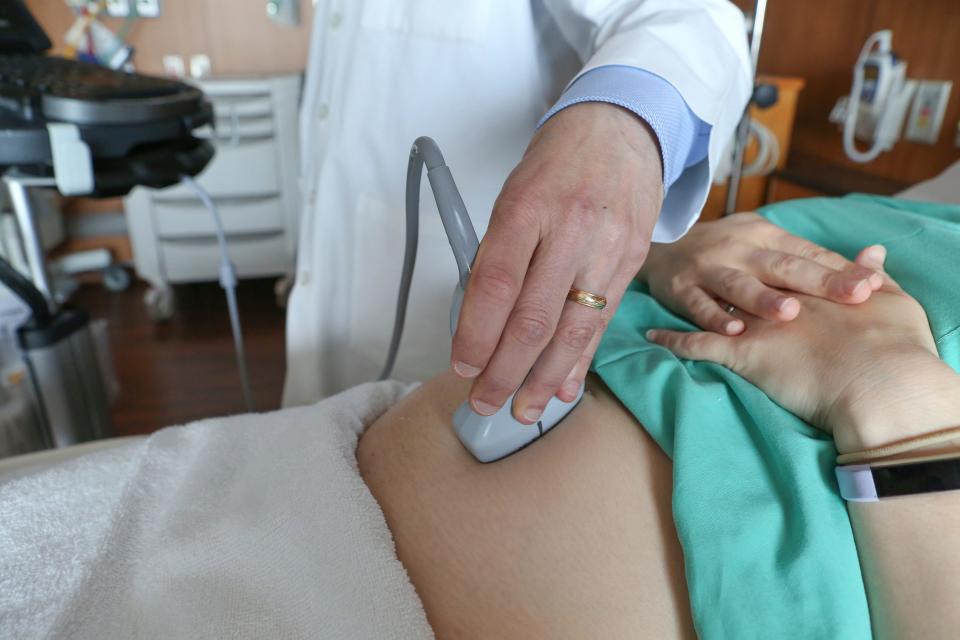With new restrictions on abortion, Americans need to open their hearts and checkbooks
The "big one" hit American social policy and politics when the U.S. Supreme Court issued its decision in Dobbs v. Jackson Women's Health Organization, overturning 50 years of law governing access to abortion. The aftershocks have been nearly as jarring.
On Aug. 2, voters in Kansas, one of the deepest of deep “red” states, voted overwhelmingly against giving legislators the power to regulate abortion by amending the state constitution, which guarantees a woman’s right to an abortion.
The Kansas vote shows that long and messy debates lie ahead. In the meantime, thousands if not millions of women will face unexpected pregnancies this year, likely in financially and personally difficult circumstances, with fewer options than they had before Dobbs.
Burdens fall largely on lower-income women
As I outlined in a recent report, the geography of abortion law and access means that the burdens created by Dobbs will fall disproportionately on lower-income and minority women who live in parts of the country with high levels of poverty, spotty health care and inadequate social safety nets.
Opinions in your inbox: Get exclusive access to our columnists and the best of our columns every day
To support these women, we need a set of public investments that are targeted at strengthening the income support, health care access and social services systems for low-income women and families facing unexpected and unwanted pregnancies.

The objective of the policies that I propose is twofold. In states where abortion is restricted, additional public spending via tax credits, vouchers and increased maternal and child wellness spending will help improve outcomes for low-income mothers, children and families.
In states where abortion remains widely available, these same programs will help address the underlying factors that women say lead them to choose to terminate their pregnancies: financial problems, absence of a committed partner and poor maternal health.
These policies seek to move our debate from a rhetoric of choice defined as a binary abortion or birth decision to one in which women have the financial and service resources to support an actual choice between motherhood and termination.
The truth is that legal policy – for or against abortion – cannot resolve the abortion controversy. The public is ambivalent on the topic, favoring abortion rights early in pregnancy but increasingly opposing the procedure later on. This means actual abortion laws are likely to remain unsettled indefinitely as state legislatures struggle to find policies that can command the support of a majority of voters.
Red and blue America don't trust each other: This is driving us dangerously apart
Finding ways of bridging differences over abortion is a delicate task with profound political consequences, especially for Republicans who have leveraged abortion politics to motivate base voters for decades.
The electoral significance of Dobbs is still unclear, but pollsters and political analysts have noted a sharp shift among women in voting preferences for the upcoming midterm election. A Fox News Poll found that before Dobbs, women voters preferred the GOP candidate by 1 point and now go for the Democrat by 6.
This shift among women voters, the Fox analysis says, roughly evens the political playing field for House elections in November. Some GOP Senate candidates in swing-state contests are also struggling in large part because women voters are mobilizing against Republican nominees who have taken a prohibitionist stance.
The more the GOP tries to ratchet down abortion access, the greater the voter reaction against them is likely to become. In other words, a positive agenda for life is a moral, practical and political necessity.
Opinion alerts: Get columns from your favorite columnists + expert analysis on top issues, delivered straight to your device through the USA TODAY app. Don't have the app? Download it for free from your app store.
Unite behind policies that help women and children
While a broad, universal consensus on the right abortion policy is unlikely, a large swath of the electorate could unite behind policies designed to support women, children and families facing hardship during unexpected pregnancies.

If we remain polarized between advocacy for unrestricted abortion and a punitive stance that insists on pregnancy but skimps on financial and social resources for women and families, we will demonstrate that neither side was sincere in its arguments about either human dignity or what a compassionate response to that dignity entails.
Life after Roe will require open hearts and open checkbooks, public and private, to prove otherwise.
Brent Orrell is a senior fellow at the American Enterprise Institute, where he researches workforce development and criminal justice issues.
You can read diverse opinions from our Board of Contributors and other writers on the Opinion front page, on Twitter @usatodayopinion and in our daily Opinion newsletter. To respond to a column, submit a comment to letters@usatoday.com.
This article originally appeared on USA TODAY: Abortion laws: States need to help women facing unwanted pregnancies

